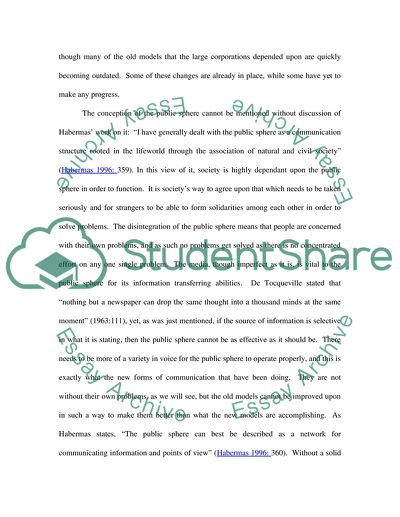Cite this document
(Is the Media in Australia Today Able to Make a Useful Contribution to Term Paper, n.d.)
Is the Media in Australia Today Able to Make a Useful Contribution to Term Paper. Retrieved from https://studentshare.org/media/1719894-sgy320-the-sociology-of-the-public-sphere-major-essay-3000words
Is the Media in Australia Today Able to Make a Useful Contribution to Term Paper. Retrieved from https://studentshare.org/media/1719894-sgy320-the-sociology-of-the-public-sphere-major-essay-3000words
(Is the Media in Australia Today Able to Make a Useful Contribution to Term Paper)
Is the Media in Australia Today Able to Make a Useful Contribution to Term Paper. https://studentshare.org/media/1719894-sgy320-the-sociology-of-the-public-sphere-major-essay-3000words.
Is the Media in Australia Today Able to Make a Useful Contribution to Term Paper. https://studentshare.org/media/1719894-sgy320-the-sociology-of-the-public-sphere-major-essay-3000words.
“Is the Media in Australia Today Able to Make a Useful Contribution to Term Paper”, n.d. https://studentshare.org/media/1719894-sgy320-the-sociology-of-the-public-sphere-major-essay-3000words.


